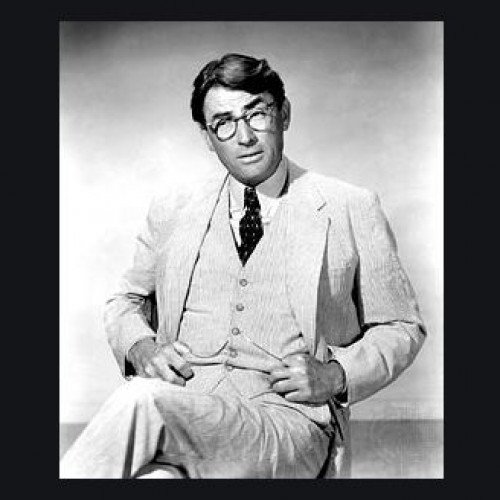"HERMIONE GRANGER, HARRY POTTER AND THE SORCERER’S STONE, J.K. ROWLING" vs "ATTICUS FINCH, TO KILL A MOCKINGBIRD, HARPER LEE"

HERMIONE GRANGER, HARRY POTTER AND THE SORCERER’S STONE, J.K. ROWLING
Hermione’s character develops significantly over the course of the story and sheds light on Harry’s character as well. At the outset, she is an annoying perfectionist, a goody-two-shoes who has read all the books for her classes in advance, has learned all about Hogwarts, and never breaks the rules. When she first speaks to Harry on the train ride to school, she is eager to impress him with her knowledge, whereas Harry only wants to make friends. Her intellectual talents are indeed worthy of pride, as we find out later when she scores 112 percent on her final exam. But we sense that her show-off side is a defense against her feelings of inferiority, because she comes from a Muggle family and, like Harry, is unfamiliar with the wizard world. In both Hermione and Harry we see that learning wizardry requires a great deal of social adjustment and self-confidence. Hermione’s development into a likable character and a friend begins in the troll episode, when Harry and Ron are reprimanded for trying to save her from the monster and she coolly delivers a bold-faced lie to the teacher. The little girl who has been abiding by all the school rules now dares to lie to her superiors, and a new friendship is born. Hermione’s decision to support her friends rather than obey the rules showcases what is perhaps truly valuable about Harry’s Hogwarts experience. The school teaches him not just facts from books and how to follow procedures, but also—and perhaps more important—loyalty, compassion for others, and solidarity.
Statistics for this Xoptio

ATTICUS FINCH, TO KILL A MOCKINGBIRD, HARPER LEE
As one of the most prominent citizens in Maycomb during the Great Depression, Atticus is relatively well off in a time of widespread poverty. Because of his penetrating intelligence, calm wisdom, and exemplary behavior, Atticus is respected by everyone, including the very poor. He functions as the moral backbone of Maycomb, a person to whom others turn in times of doubt and trouble. But the conscience that makes him so admirable ultimately causes his falling out with the people of Maycomb. Unable to abide the town’s comfortable ingrained racial prejudice, he agrees to defend Tom Robinson, a black man. Atticus’s action makes him the object of scorn in Maycomb, but he is simply too impressive a figure to be scorned for long. After the trial, he seems destined to be held in the same high regard as before. Atticus practices the ethic of sympathy and understanding that he preaches to Scout and Jem and never holds a grudge against the people of Maycomb. Despite their callous indifference to racial inequality, Atticus sees much to admire in them. He recognizes that people have both good and bad qualities, and he is determined to admire the good while understanding and forgiving the bad. Atticus passes this great moral lesson on to Scout—this perspective protects the innocent from being destroyed by contact with evil.